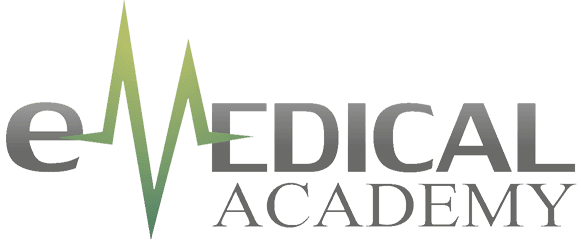Have CCEeXAM questions?
Let’s look at what past test takers have said about the CCEeXAM and how you can prepare for it and be confident.
The National Board of Echocardiography Inc. (NBE) is a physician, volunteer-led not-for-profit corporation. The CCEeXAM is part of NBE’s continuing education process and is one of the exams administered by the NBE.
The very first CCEeXAM was administered in 2019. It was a collaborative effort between the National Board of Echocardiography Inc. (NBE) and nine other medical societies.
Most people came into the exam with very little insight into what might be on the test, except for an outline with broad, general information. There were 5 sections and each section had 40 multiple-choice questions, making it a total of 200 questions. 54 minutes were given for each section.
The total exam took 4.5 hours with breaks in between each block. 526 people took the 2019 exam and approximately 85% passed the exam. (https://rk.md/2019/critical-care-ultrasound-cceexam-impressions/ )
Since the first CCEeXAM was given, many people have taken it and have shared their experience. If you have CCEeXAM questions, these comments may help you get a better idea of what to expect:
(These answers are quoted from https://rk.md/2019/critical-care-ultrasound-cceexam-impressions/.)
- Content [of the] outline rather sparse
- I thought it was a very difficult test, but pretty fair. It was a bit longer than I thought it was going to be, and most of it had a CCM bent, though a few questions we’re geared more towards cardiologists (at least as it seemed to me). I have heard that NBE exams in general are tough and passing rates can be as low 70%. Fingers crossed.
- That was a very difficult test. Caught me off guard. I honestly did not think I was going to be there for 4 hours. There were some very tricky, nuanced clinical vignettes. I liked the fact that the questions felt real and that they expect a lot out of the examinees. However, I would not be surprised if I didn’t pass. If nothing else, I learned a ton of echo over the past couple of months.
- I took the SCCM board review course and reviewed the on-demand videos [afterwards]. The eMedical Academy also had a set of 250 review questions, which were especially good for physics. ASE guidelines are also useful.
- Good luck! The minimum passing score was just over the 19th percentile for my exam cohort, so you don’t really have to “outrun the lion” here – just be faster than your slowest friend.
- I took it. I thought it was hard as hell but did pass. A few thoughts:
- The SCCM review course was helpful but some of the talks were not relevant, I suspect that will get much better next year.
- I used the book all the cards fellows use for their (reportedly even harder) test: Clinical Echocardiography Review – A self-assessment tool”.
- Anything that you think is too complex and not relevant to POCUS – yes study it – it is probably on there unless it is explicitly left off (like stress echo). Think about it this way – there are a bunch of different people making the test with different interests. Cardiologists who may have an interest in making the test as difficult as possible, anesthesia people who have more TEE experience than TTE, echo people who want to focus on physics and views etc.
- Do NOT ignore TEE. I had assumed that since TEE is not used for POCUS in any appreciable numbers (in the US anyway) that the TEE would be limited to a handful of very general type questions like “what view is this” – not so. There was way way way more TEE than I expected, and it was integrated into real questions that I often would have been able to answer if the image was TTE but instead I was left trying to figure out what the heck I was looking at.
- Took the Jan 2020 offering of the critical care echo boards. I thought the exam was very difficult but fair. It reminded me of the usmle step 1 exams in time management. There were many questions on heart lung interactions, echo images which mirrored the quality of ICU images, cardiology type questions requiring intimate knowledge of cardiac dimensions and “spot” diagnoses with limited history and a fair amount of hemodynamics equations. There was a large amount of echo physics and a smattering of congenital diseases. A tough exam, and as others have noted, one whose role in the critical care environment is still evolving. However, the results pan out, I ended up learning a lot about echo in the past 6 weeks and plan to continue developing my skills
- Tough exam today. Not sure what neurology critical care, surgery critical care and pulm critical care folks thought about that exam. Much more geared towards cardiology and CV anesthesia CTICU folks. Very, very heavy cardiac based. Lots of mitral inflow, doppler, etc.
- Some thoughts about the exam:
- If one already has a decent understanding of echo, i.e. you’ve passed the advanced PTE or ASC, you’re probably not going to have a terribly tough time with this one.
- The lung and abdomen portions are more difficult than one would think. The questions are not as simple as “Do these b-lines indicate pulmonary edema?” or “Do you see free fluid in Morrison’s?” Watching a 10-minute YouTube video on lung U/S or FAST is not sufficient. You need to read journal articles/textbook chapters on lung/body U/S to get all these q’s right.
- The valvular questions are pretty basic. This is consistent with the content handbook where the objective of CCE isn’t to diagnose paradoxical low flow low gradient AS in the echo lab or tell a surgeon whether a mitral repair is adequate after coming off bypass. The wall motion questions were pretty straightforward too.
- The physics and hemodynamics are relatively basic. A couple of the artifact q’s were tricky.
- The still image and clip quality is fine. I may be biased because I look at so much echo that I can generally figure out what I’m looking at and what’s wrong even with “bad” images.
- Many of the questions are based on knowing how to correctly manage the pathophysiology of many conditions encountered in the ICU. Doesn’t matter how much echo you know if you don’t understand the underlying critical care physiology. There was also a fair amount of trauma management on the test.
- Overall I think the exam was very fair and if you just study the topics on the CCE content outline rigorously I would bet your chances of passing would be very high.
If you are preparing for the CCEeXAM, hopefully, this feedback gives you a good idea of what you can expect.
If you need help with CCEeXAM prep, please check out our CCEeXAM prep course.
 English
English
 Español
Español 

